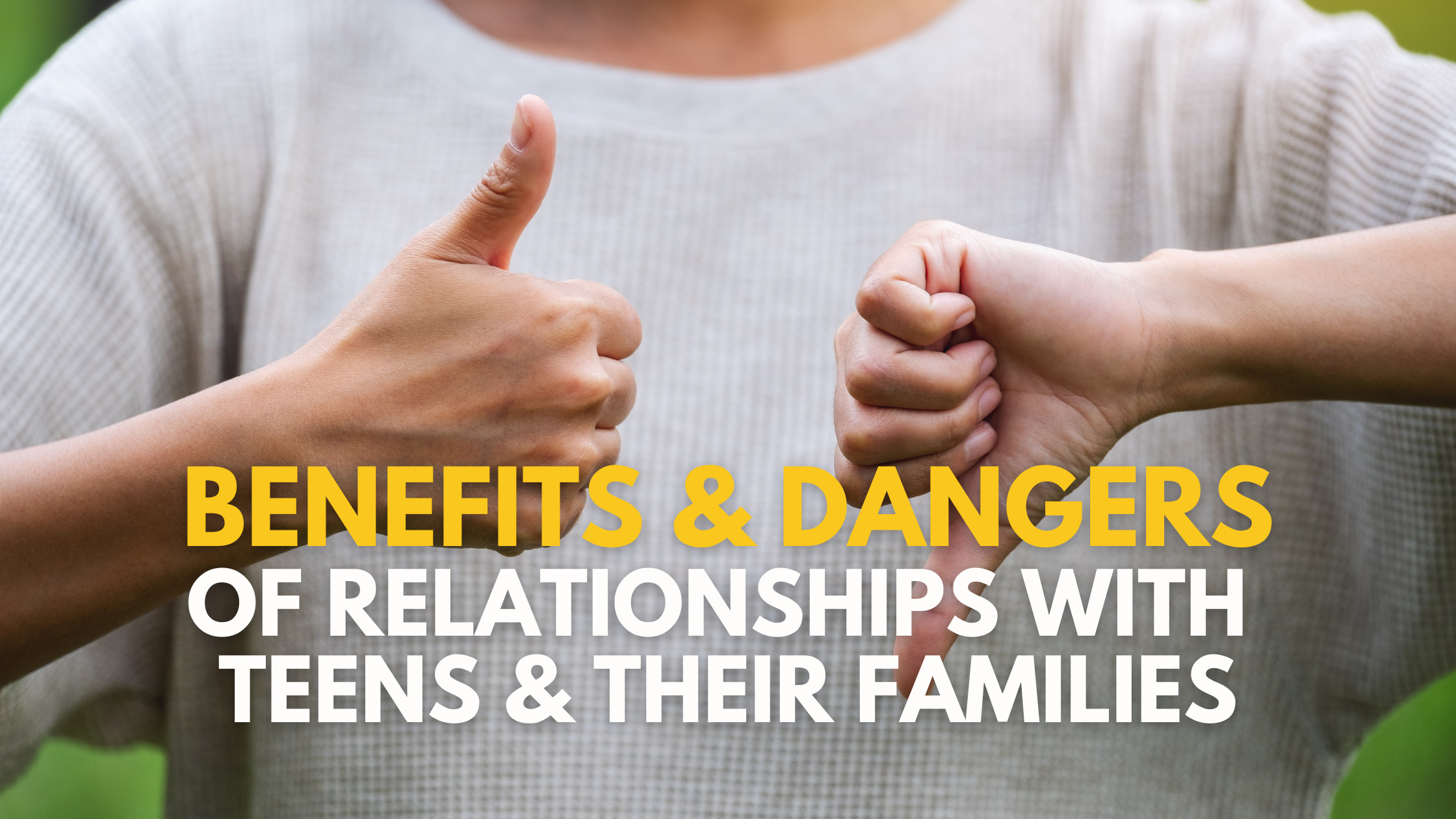When I look back on my different ministry experiences, I don’t think about the books I read, or the conferences I attended, or the lessons I planned. I think about the relationships I developed with the teens with whom I worked. I think about what worked well because of the benefits of the relationships built, or what could have gone better if I had time to build better ones.
While I find relationships to be crucial to a thriving ministry, I wonder if there is a point where knowing my teens and their families can become too much. So, what are the benefits and dangers of knowing the young people with whom we work? Can we really know too much?
Defining the Benefits and Dangers
Benefits of Relationships With Teens
There are several facets to the job we do as youth ministers. We can be friends, counselors, teachers, referees, coaches, etc. I think we can all agree we wear multiple hats in our positions within the church.
But in all we do, it’s the relationships we build with our teens and their families that best define and support our role. Relationships are the very foundation on which most of our ministries stand. And the deeper those relationships grow, the better we can minister to the needs of those teens and their families.
What The Benefits Might Look Like
I can think of one teen with whom I work. I know him on a deep level. This teen attends most events, calls on non-youth group days, shows up to church early just to hang out. This teen tends to be transparent in sharing about life, sharing the highs and lows, struggles and achievements. It is not unusual for me to receive a text after he receives an award at school, or wants to celebrate a new skill.
Later, when he started experimenting with marijuana and stepped away from church activities, I felt comfortable talking with him about it. Subsequently, he was open and honest with me, as were the teen’s parents in sharing their concerns and expectations moving forward.
I credit this to my own tendencies toward transparency with my teens. Only when I trust them with some personal stories can they also begin to trust me with their personal stories.
INTERESTED IN A YOUTH OR Children’s MINISTRY CERTIFICATION?
Accelerate your leadership and ministry through this 18-month program. We are launching our next cohort soon!
Another teen in my group has shared about a struggle she’s faced concerning self-mutilation and cutting. We’ve talked about issues that may trigger episodes. We’ve talked about coping strategies, and about finding a counselor with whom she could talk.
I have shared my heart with this teen, shared about my own struggles with self-doubt, depression, and loneliness. We have shared common ground in wanting to be enough and struggling to feel how we compare to others around us.
On one hand, knowing what my teens are facing allows me to help in deeper, more meaningful ways. It allows me to help where I can and to help provide resources for professionals that can help where I cannot.
Dangers of Relationships With Teens
On the other hand, knowing so much about my teens can be a heavy burden to bear. Especially when I want to fix every issue and know I cannot.
While I love the relationships I’ve developed with my teens, I find myself being careful. I don’t want lines to be crossed. When lines get crossed, I put myself and the teens at risk. That simply cannot happen within the church.
Teens need to know they have found a safe place. They need to experience the love of God in deep, meaningful ways. Then they can show that love to others.
I can remember my senior year in college. With graduation around the corner, I was coming to the end of my senior youth ministry internship. I remember meeting with my supervisor after an outing I had taken with some girls from my youth group. We talked about the benefits of being friends with the teens, but he also warned me about getting too close. Not in the sense that I can know too much, but that my authority may be in jeopardy as a teacher and disciplinarian.
It’s great to be a friend and pal to the teens – up to a point. But lines can get blurred quickly, my supervisor warned me, if I focus too much on the friendship. I quickly learned the difficulty I could face. It could be hard to switch gears from just being one of the kids to being the adult leader. Especially if I switched gears too soon or too late.
Even now, 16 years later, I must remind myself to keep the line in sight. I have to balance being the adult and making sure kids stay safe with being the teacher and friend to whom they will speak freely.
Don’t Lose Sight Of Your Own Well-Being
My heart aches for the young people with whom I work – for the teens growing up without their parents, for the teens struggling to feel like they are worth something. And sometimes, knowing the struggles they face is enough to make me question how long I can keep going in this career. Sometimes the burden just feels too heavy.
But I don’t carry that burden alone. I won’t be afraid to seek counseling if and when I need it. Having a professional sounding board to share my concerns, to help give me perspective when I feel like I’m losing it could very well be the difference between burning out early and carrying on in ministry for a lifetime. And while I do not currently have a professional counselor, I do have friends and family outside of my career that help me keep my eyes on Jesus. And thank God for Jesus – who promises to take our burdens and trade them for rest.

Sarah Taylor has been the youth director at Gulf Cove United Methodist Church in Port Charlotte, Florida, since 2017. She has a Master’s Degree in Youth Ministry from Wesley Seminary as well as a Master of Fine Arts in Creative Writing. She loves books and writing, has a borderline obsession with Harry Potter and Gilmore Girls, and loves Cherry Pepsi. She lives in North Port, Florida, with her 14-year-old cat, Milo.


We Would Love to Hear Your Thoughts